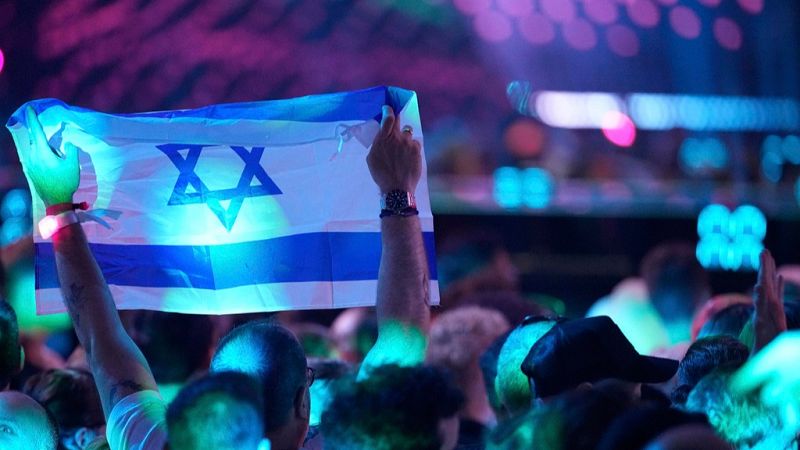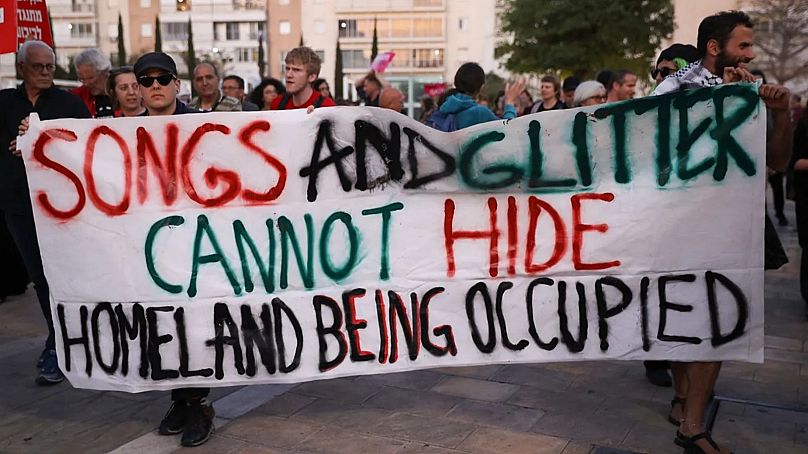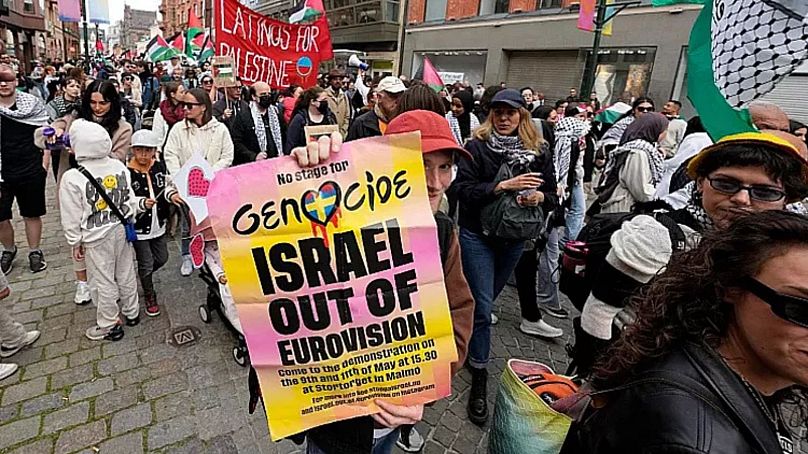German Chancellor Friedrich Merz threatens to boycott Eurovision Song Contest if Israel is excluded

German Chancellor Friedrich Merz is considering boycotting next year's Eurovision Song Contest if Israel is excluded.
When asked in an interview with public broadcaster ARD on Sunday whether Germany should voluntarily withdraw from participation in the world’s largest live music event next year if Israel is excluded, Merz said: “I would support this. I think it’s a scandal that this is even being discussed. Israel has a place there.”
Germany is one of Eurovision’s "Big Five" alongside France, Italy, Spain and the UK - the countries whose broadcasters are the contest's biggest financial contributors.
France has already confirmed it will be participating in next year’s contest, while Spain recently became the first of the “Big Five” to officially announce it would withdraw from next year’s Eurovision should Israel not be banned.
Other broadcasters threatening to withdraw unless Israel is banned from participating include the Netherlands, Ireland, Iceland and Slovenia. Danish broadcaster DR has stated it will not withdraw from Eurovision if Israel competes, but did set conditions for its continued participation.
Faced with increasing pressure, EBU confirmed last month that it will hold an online vote in November that could see Israeli broadcaster KAN expelled from Eurovision 2026.
For the first time, all member broadcasters will be invited to an extraordinary online General Assembly to vote on whether KAN can take part in the contest. The vote will be the only item on the agenda.
In a letter sent to participating broadcasters, EBU president Delphine Ernotte Cunci wrote there was an “unprecedented diversity of views” on Israel’s participation in Eurovision, and that the issue required “a broader democratic basis”.
“We can confirm that a letter has been sent from the executive board of the European Broadcasting Union to directors general of all our members informing them that a vote on participation in the Eurovision song contest 2026 will take place at an extraordinary meeting of the EBU’s general assembly to be held online in early November.”
While Eurovision is supposedly apolitical, the EBU excluded Russia from the competition shortly after its invasion of Ukraine in 2022. However, Israel has continued to compete over the past two years despite international concerns over its actions in Gaza.
Both the 2024 contest in Sweden and this year’s event in Switzerland saw pro-Palestine protests.
More than 70 former Eurovision contestants have signed an open letter demanding Israel and its national broadcaster KAN be banned from the contest, and the winner of last year’s Eurovision, Austrian singer JJ, has said that he too wants Israel to be banned from the Eurovision 2026.
Israel’s KAN issued a statement following the announcement of the November vote, reportedly expressing “hope that the Eurovision Song Contest will continue to maintain its cultural and apolitical character.”
It also warned that excluding Israel from the contest “could be a step with wide-ranging implications.” No further elaboration was provided.
Since Hamas’ attack on Israeli citizens on October 7, 2023, multiple UN human rights experts have stated that Israel’s military actions in Gaza amount to genocide, with the International Court of Justice finding claims of genocide plausible. The Integrated Food Security Phase Classification announced that people in the Gaza Strip are officially facing “a man-made” famine in the territory – despite what the Israeli government has said.
The 70th anniversary edition of Eurovision is due to take place in Vienna, Austria. The finale will take place on 16 May after the semi-finals on 12 and 14 May 2026.
Today



